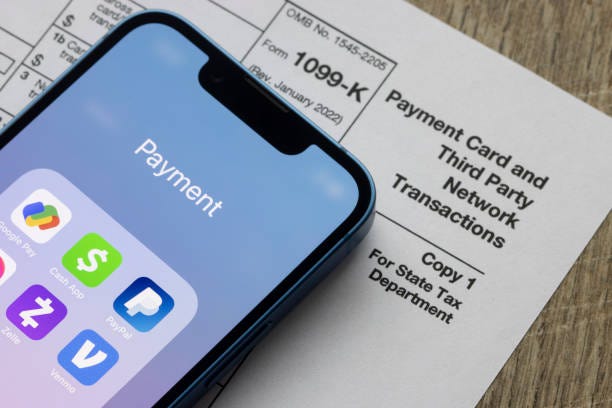Mastering WordPress: A Comprehensive Guide to Website Creation Create website
Introduction
In the ever-evolving landscape of online presence, creating a website on WordPress has become a cornerstone for businesses and individuals alike. In this comprehensive guide, we delve into the intricacies of WordPress website creation, offering invaluable insights to ensure your digital footprint stands out. Let’s navigate through the key steps and best practices to elevate your website’s visibility and user experience.
Understanding the Power of WordPress Create website
Unleashing the Potential of an SEO-Friendly Platform Create website
WordPress stands tall as a versatile and user-friendly content management system, providing a robust foundation for website development. Its SEO-friendly nature is a game-changer, empowering users to optimize their content effortlessly. From customizable permalinks to XML sitemaps, WordPress streamlines SEO processes, giving you a competitive edge in the digital realm.
Crafting a Solid Foundation: Setting Up Your WordPress Website
Selecting the Right Theme for Success
The aesthetics of your website play a pivotal role in user engagement and search engine rankings. Choosing a responsive and SEO-optimized theme is paramount. Themes impact site speed, mobile responsiveness, and overall user experience. Opt for a theme that aligns with your brand identity while ensuring seamless navigation for visitors across devices.
Navigating the Plugin Landscape
In the WordPress ecosystem, plugins act as powerful tools to enhance functionality and optimize content. From Yoast SEO for on-page optimization to W3 Total Cache for improved site speed, strategically integrating plugins can significantly boost your website’s performance. However, moderation is key; too many plugins can hamper your site’s speed and user experience.
Content is King: Crafting Compelling and SEO-Optimized Material
The Art of Keyword Integration
To outrank competitors, strategic keyword integration is non-negotiable. Conduct thorough keyword research to identify phrases relevant to your content. Seamlessly incorporate these keywords into your titles, headings, and body text. This not only enhances search engine visibility but also resonates with your target audience.
Quality Content: The Cornerstone of SEO Success
Engaging, informative, and well-researched content is the heartbeat of a successful website. Regularly update your site with fresh, relevant material to keep both users and search engines engaged. Aim for in-depth articles that provide comprehensive insights, positioning your website as an authoritative source in your niche.
10 Best Domain Name Registrars To Use Now (2024)
Navigating the Technical Terrain
Mobile Optimization: A Must in the Mobile-First Era
As mobile usage continues to soar, optimizing your website for mobile devices is no longer a choice—it’s a necessity. Google prioritizes mobile-friendly websites, so ensure your site is responsive, with easy navigation on smartphones and tablets. This not only boosts your SEO but also enhances the overall user experience.

Page Speed: The Need for Speed in the Digital Race
Site speed is a critical factor influencing both user satisfaction and search engine rankings. Compress images, leverage browser caching, and minimize HTTP requests to ensure swift loading times. Google’s algorithms favor fast-loading websites, making it imperative to fine-tune your site’s performance.
Best Hosting Provider Platform – Hostinger
Building Backlinks: The SEO Power Play
Strategic Link Building for Authority
Earning quality backlinks remains a cornerstone of effective SEO. Develop a link-building strategy by reaching out to reputable websites in your industry. Guest posting, influencer collaborations, and participation in online communities can pave the way for valuable backlinks, elevating your website’s authority in the eyes of search engines.
Monitoring and Adapting: The SEO Journey Never Ends
Analytics: Your Window into Website Performance
Regularly monitor your website’s performance through tools like Google Analytics. Track user behavior, identify high-performing pages, and refine your SEO strategy accordingly. Understanding how visitors interact with your site empowers you to make informed decisions for continuous improvement.
Conclusion
In the dynamic realm of online visibility, mastering the art of creating a website on WordPress is your ticket to digital success. From meticulous SEO strategies to a user-centric approach, every facet contributes to your website’s standing in the vast expanse of the internet. Implement these insights, adapt to industry trends, and witness your WordPress website soar in Google rankings Create website on wordpress.
Top 20 Questions and Answers: Creating a Website on WordPress
1. Why Choose WordPress for Website Creation?
WordPress is a versatile, user-friendly platform, offering a robust foundation for website development. Its extensive themes, plugins, and SEO capabilities make it a top choice for individuals and businesses.
2. How Do I Choose a Domain Name?
Select a domain name that reflects your brand, is easy to remember, and ideally includes a relevant keyword. Ensure it aligns with your brand identity and is easy to spell.
3. Which Hosting Provider is Recommended for WordPress?
Reliable hosting providers such as Bluehost, SiteGround, and WP Engine are popular choices. Look for good uptime, customer support, and specialized WordPress hosting.
4. Is WordPress Easy to Install?
Yes, most hosting providers offer a simple one-click installation for WordPress. Follow the prompts in your hosting control panel to set up your website.
5. How Do I Choose a WordPress Theme?
Browse the vast theme options available on WordPress. Choose a theme that aligns with your brand, is mobile-responsive, and optimized for search engines.
6. What Customization Options Does WordPress Offer?
Utilize the WordPress Customizer to modify your site’s appearance, including colors, fonts, and layouts. Upload your logo and ensure your website represents your brand effectively. Create website
7. Which Plugins are Essential for a WordPress Website?
Essential plugins include Yoast SEO for optimization, Akismet for spam protection, and W3 Total Cache for performance. Install only necessary plugins to keep your site streamlined. Create website
8. What are the Key Pages to Create on a WordPress Website?
Create essential pages like Home, About Us, Contact, and Products/Services. These pages provide a foundation for your website and inform visitors about your brand.
9. How Do I Add Content to My WordPress Website?
WordPress makes content creation easy. Navigate to the editor to craft compelling, SEO-friendly content for pages and blog posts. Add engaging images and format text for readability.
10. What SEO Practices Should I Implement on My WordPress Site?
Optimize your website by including relevant keywords, adding meta titles and descriptions, and creating a sitemap. These practices enhance search engine visibility.
11. How Do I Ensure the Security of My WordPress Website?
Enhance security by installing a security plugin, using strong passwords, and keeping WordPress and plugins updated. Regularly back up your site to prevent data loss.
12. What Pages Should I Include in the Navigation Menu?
Customize your navigation menu to include essential pages like Home, About Us, Contact, and any other relevant sections. Ensure easy navigation for visitors.
13. How Do I Test My WordPress Website Before Launching?
Thoroughly test your website by checking for broken links, testing forms, and ensuring it looks great on different devices. Address any issues before launching.
14. How Can I Optimize My WordPress Website for Mobile Devices?
Choose a mobile-responsive theme and regularly test your site on various devices. Ensure that navigation is smooth and content is easily accessible on mobile.
15. What is the Importance of Regular Maintenance for a WordPress Website?
Regularly update WordPress, themes, and plugins to ensure optimal performance and security. Monitor analytics to understand visitor behavior and make informed improvements.
16. Can I Change My WordPress Theme After Launch?
Yes, you can change your theme after launch. However, ensure the new theme is compatible with your existing content and make necessary adjustments.
17. How Do I Add a Blog to My WordPress Website?
Create a blog by adding a new page and categorizing it as a blog. Start publishing posts, and use categories and tags to organize your content effectively.
18. What Steps Should I Take After Launching My WordPress Website?
After launching, promote your website through social media, engage with your audience, and continue refining your content based on analytics and user feedback.
19. Can I Monetize My WordPress Website?
Yes, you can monetize your website through various methods, such as affiliate marketing, sponsored content, and selling products or services.
20. How Do I Stay Informed About WordPress Updates and Trends?
Stay informed by following official WordPress blogs, joining forums, and participating in the WordPress community. Regularly check for updates and new features to stay ahead.




